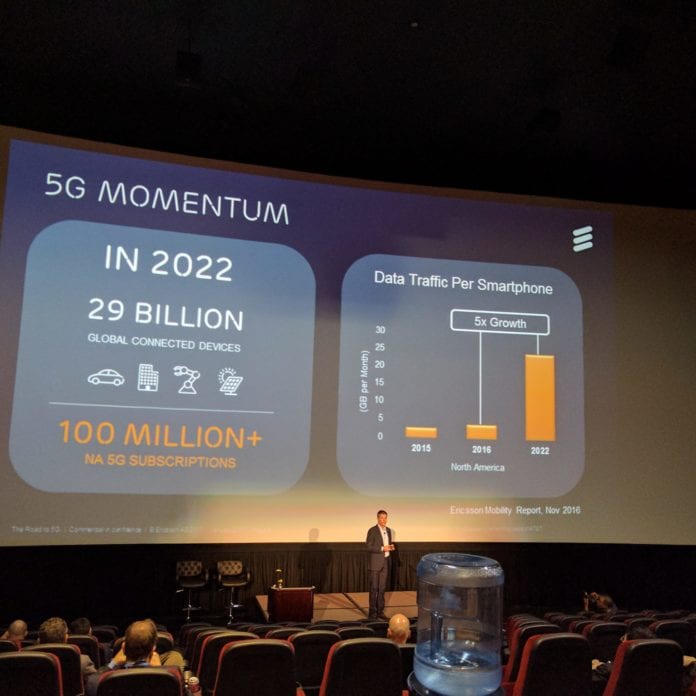London has set out a five-point digital strategy to make it the smartest city in the world.
Among more than 20 initiatives, bucketed into five ‘mission’ themes, the plan details a new Civic Innovation Challenge to match startups with enterprises, a new London Office for Data Analytics (LODA) to encourage data-sharing between City Hall and the city’s boroughs and services, and a new Connected London programme to coordinate connectivity and 5G projects.
Presented as a “flexible digital masterplan for the city”, London Mayor Sadiq Khan said the roadmap, called Smarter London Together, will help the city’s public services, including Transport for London (TfL) and the National Health Service (NHS), use digital technology and data to improve the lives of Londoners.
Khan said: “As one of the world’s leading technology hubs, we need to be bold and think big, to experiment and try things out that have not been done elsewhere. I see London’s future as a global ‘test-bed city’ for civic innovation, where the best ideas are developed, amplified and scaled.
“To solve the biggest problems, I am calling for an ever-more collaborative approach than ever. We need our public services, major universities and technology community to mobilise their resources in new ways and partner with us to make London a fairer and more prosperous place.”
The plan’s five mission themes are digital connectivity, data sharing, citizen-led design, skills, and collaboration.
UK regulator Ofcom predicts the number of connected devices will increase 12-fold in the UK by 2026. Khan wants to coordinate infrastructure investment and make better use of public and private land and assets to cater to this rising demand, and to democratise access.
The new Connected London programme will seek to tackle ‘not-spots’ and mobilise public-sector property to reduce the costs of fibre deployment. TfL will also deploy fast digital connectivity along transport corridors by securing significant investment in fibre capability in the London Underground.
The platform will also look to make affordable connectivity available to the creative industries, in London’s new ‘creative enterprise zones’, and introduce standardised agreements to deliver a “new 5G standard for London.”
Only five per cent of London properties are able to access residential fibre to the property (or ‘fttp’) services, as it stands. A newly revised draft London Plan proposes that planning policies will require new buildings in London to provide full fibre connectivity to the home.
Other connectivity measures include the coordination of public wifi services in London, the introduction of a London-wide Wi-Fi service, a new generation of smart technology, including lamp posts that include air sensors, Wi-Fi hubs, cameras, vehicle charge points, and potential for 5G rollout.
Theo Blackwell, London’s first chief digital officer, said: “The new roadmap focuses on getting the foundations for the future right. Digital connectivity is now rightly seen by Londoners as important as their other utilities.
“We will properly mobilise the city’s resources to end not-spots, and propose planning powers to ensure new developments are connected. We will put people’s priorities first through the Mayor’s Civic Innovation Challenge to mobilise the best in the tech sector to help solve urban problems.”
Khan has staked £365,000 on the new LODA data analytics centre, which started with a pilot with UK innovation agency Nesta and several London boroughs in 2016-17. Funding comes from City Hall, the London Fire Brigade, the Centre for Urban Science and Progress, and the Horizon 2020-funded Sharing Cities initiative.
LODA will operate across councils, the NHS and other public services. It will build on existing partnerships with universities and the tech sector.
In tandem, the Mayor will develop a “pan-London” cyber-security strategy, drawing together new and existing bodies including the London Digital Security Centre and the London Cyber Innovation Centre, in response to concerns about the use of their data and online safety.
The plan includes further data related initiatives around data ethics and algorithmic transparency.
“We will strike a new deal with citizens on use of their data so when it is appropriate to share data, it is done in a trusted, safe way and for public benefit. Tech jobs should open for Londoners and we will invest in skills and support efforts to make the tech sector more diverse,” said Blackwell.
As well, London will seek to deploy smart city technologies that put citizens’ needs first, it said, by championing the adoption of common standards and design principles in public services. It will develop new approaches to digital inclusion, for both citizens and entrepreneurs.
The new Civic Innovation Challenge, matching tech talent with investment and deployment opportunities, will cater to the latter group. Khan has also committed £4m to new LOndon crowdfunding platform, Crowdfund London, to support projects and scale up the platform by 2022.
The city’s final stated smart city missions are around digital leadership and skills, and city-wide collaboration. A London Office of Technology & Innovation (LOTI) will be established to support common capabilities and standards for future innovation, and improve digital collaboration and sharing between London’s 33 local authorities and City Hall.
Blackwell said: “All of this will succeed only through collaboration and partnership, which we are committed to. We call on the tech community in all its forms across London to join us in this challenge.”

